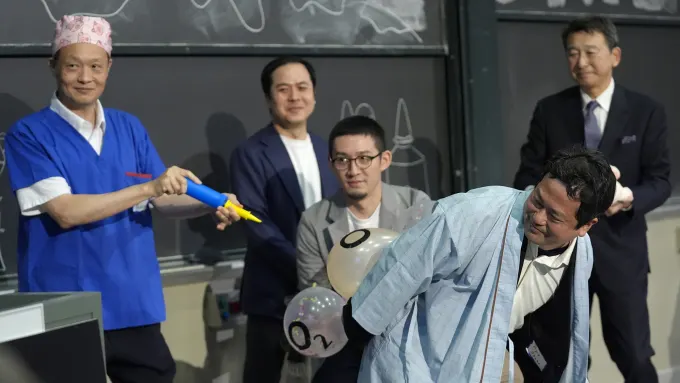
A team of Japanese scientists, led by Ryo Okabe and Takanori Takebe, received the 2024 Ig Nobel Prize in Physiology for their groundbreaking research on mammalian respiration.
Their study revealed that many mammals have the ability to breathe through their anuses, a discovery that could offer alternative solutions for oxygen delivery in critical situations, such as during ventilator shortages experienced during the Covid-19 pandemic.
The Ig Nobel Prizes, awarded on Thursday, celebrate unconventional research that “makes people laugh, then think.” The ceremony featured quirky demonstrations, including a performance by Professor Sander Woutersen and his oversized stuffed worm, illustrating chromatography used to separate drunk and sober worms.
Other winners included Jacob White and Felipe Yamashita for their botany research on how some real plants mimic fake ones, James C. Liao for his physics study on how dead trout swim, and a French-Chilean team for examining hair swirl patterns across hemispheres.
The event, notable for its humor and unusual experiments, included live demonstrations such as exploding paper bags next to cats on cows, and a Dutch-French team showing how chromatography can differentiate between drunk and sober worms.
Each laureate received a symbolic prize: an obsolete Zimbabwean ten trillion-dollar bill and a “transparent box” themed around Murphy’s Law, which humorously contained missing items and was nearly impossible to open.








